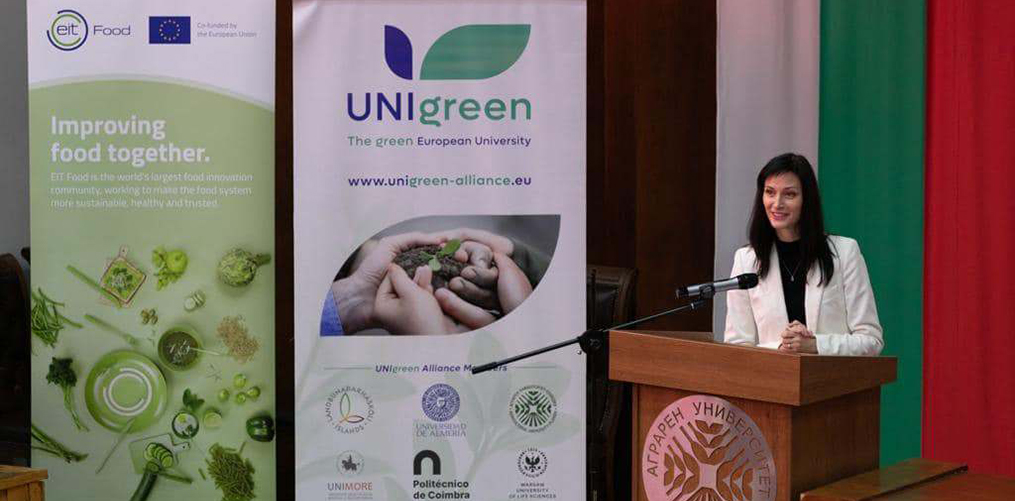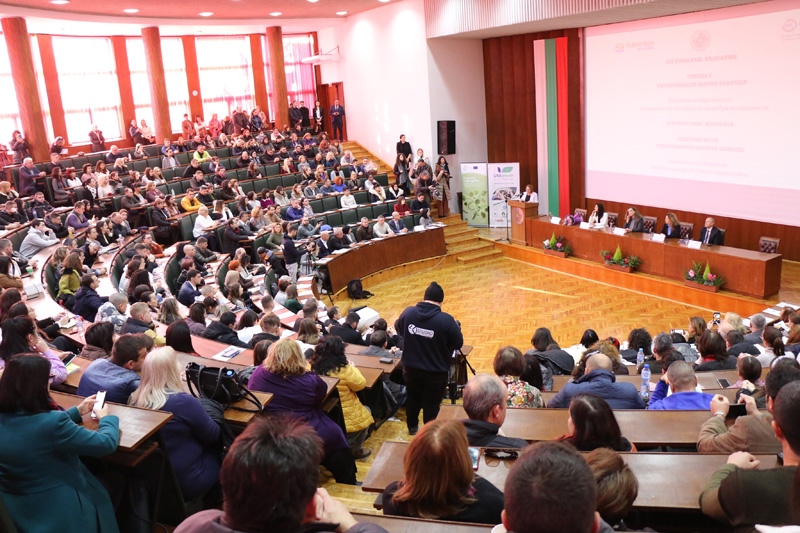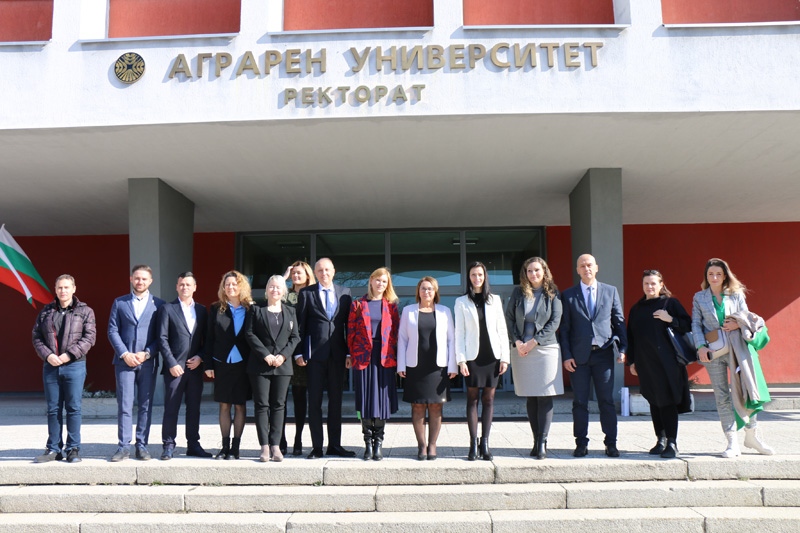
Last week, the LifeWatch Bulgaria consortium representative, the Agricultural University – Plovdiv, was thrilled to welcome the European Commissioner for Innovation, Scientific Research, Culture, Education and Youth, Mariya Gabriel, to its premises. The Commissioner held a meeting with students, teachers, innovators, young scientists, representatives of the European Institute for Innovation and Technology in Food (EIT Food) and citizens of Plovdiv on the theme of “Innovation and education – building synergy for better opportunities”.
In the European University Strategy, the leading initiative is the European University Alliances and their acquisition of status; there are currently 44 alliances, and the goal is for them to grow to 60 by 2024. Behind the 44 alliances are 340 universities from 31 countries and 1,300 partners: non-governmental organisations, local authorities, enterprises, noted Gabriel.
The Innovation Commissioner went on to underline that there is a difference between regions and member states in terms of science and innovation. Europe’s goal is to form 100 regional innovation consortia/hubs to connect and work towards a pan-European innovation system. For 70% of all companies in Europe, the first hurdle to growing businesses and investing in each location is finding people with knowledge, Gabriel said. According to her, the role of universities is to become a driving force. Plovdiv, she said, is a shining example for Europe because of the many innovative local ecosystems. It has set a goal of having 1,000,000 tech talents by 2025. “Europe needs investment in people with skills and talents in technology, for which I want to congratulate this wonderful university, which educates and develops the talents of future leaders in these fields every day” she commented.
The rector of the Agricultural University-Plovdiv, Professor Hristina Yancheva, drew attention to the fact that the university is a partner in the UNIgreen European University Alliance, and explained that the alliance is the first project in Europe for a “green” European university in agronomy, biotechnology, and natural sciences. As an excellent model for cooperation in the field of science, the rector highlighted the university’s membership and collaborative work of the LifeWatch Bulgaria consortium, which has been part of LifeWatch ERIC since the beginning of 2022.

